I received $150 from AstraZeneca, and any opinions expressed by me are honest and reflect my actual experience. This post wasbrought to you by SheSpeaks/AstraZeneca
It’s time to educate yourself on BRCA! Cancer kills! It is not prejudice against race, gender, religion, or age. There are so many variations of cancer that most people have been affected by it. I have had loved ones fight the fight but loss in the end and I have loved ones who fought and beat it.
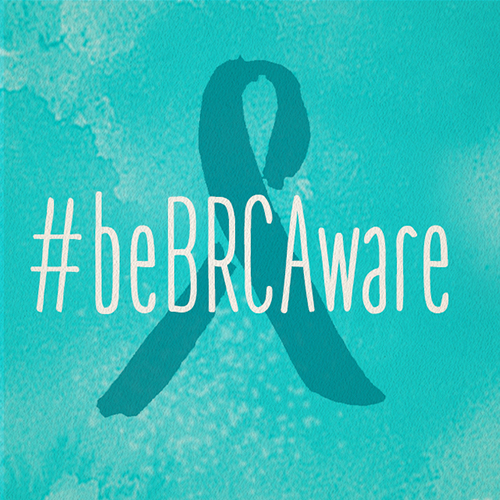
September is Ovarian Cancer Awareness Month and the #beBRCAware Campaign is in full effect. I was more than happy to join this campaign with SheSpeaks and share this important information with you. My hope is you will read and soak it in and spread the word with your family and friends well after September.
Cancer runs in my family and when I went for my yearly checkup and was told they needed to do a biopsy, then to be told I had to go in for surgery to remove part of my cervix, I was in a fog. I was in denial of the severity and still had the “Not Me” motto. Long story short, they removed the cells that “could” have turned into cancer and I have been fine ever since. I could only imagine what those I loved went through when they heard those words, “We have found cancer.” In honor of all my loved ones, I want to share with you.
You can now be tested for the BRCA gene.
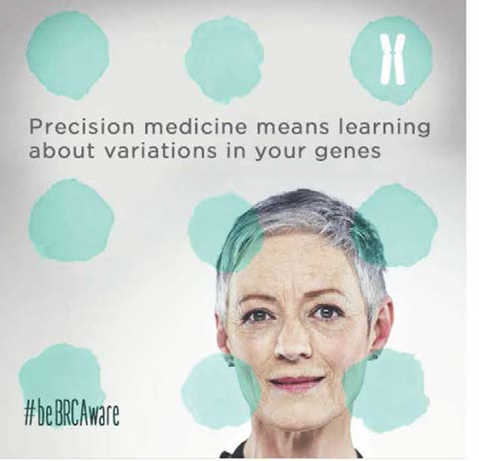
Have you or has someone you know been diagnosed with ovarian cancer? If they have let’s get educated!
What is a BRCA gene?
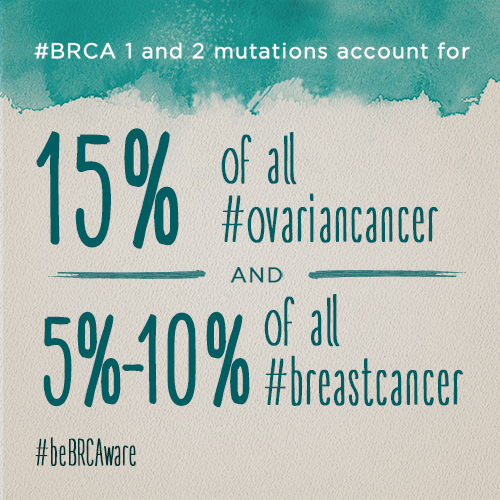
BRCA1 and BRCA2 are human genes involved with cell growth, cell division, and cell repair. Although they are most commonly associated with BReast CAncer, approximately 15% of women with ovarian cancer also have BRCA gene mutations.
The Importance of BRCA Testing for Ovarian Cancer
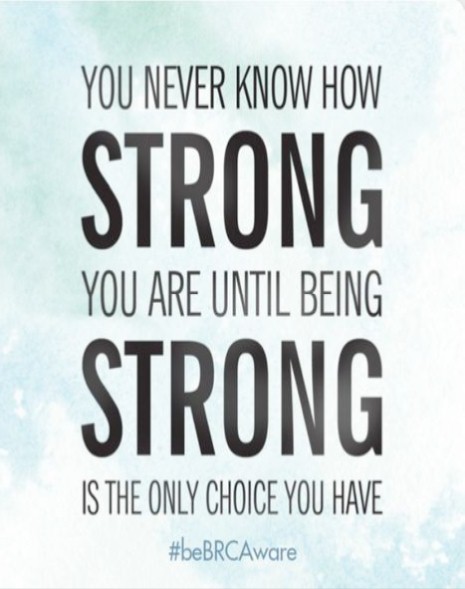
There are a number of misperceptions about BRCA testing, such as the misperception that only those with a family history of breast or ovarian cancer or who are diagnosed at a young age should be tested. But, family history and age are poor predictors of BRCA status in ovarian cancer patients, which is why it is so important for all women with ovarian cancer to be tested.
- National guidelines from organizations such as NCCN, ASCO and SGO recommend that all patients with epithelial ovarian cancer be considered for BRCA testing, regardless of family history, age at diagnosis, or ethnicity
- Approximately 15% of women with ovarian cancer have a deleterious BRCA mutation
- Despite these guidelines, every year many patients with ovarian cancer are not tested for a BRCA mutation
- Almost half (47%) of BRCA-positive ovarian cancer patients have no significant family history of ovarian or breast cancer
- Over two thirds (71%) of BRCA-positive ovarian cancer patients are aged 50 or older
The Test is a blood or saliva sample that can be taken at your physician’s office or at a local lab. In the United States, results are usually available in 2 to 3 weeks
- BRCA status in ovarian cancer affects treatment outcomes, and there are treatment options available specifically for women with BRCA mutations
- Personalized, or precision, medicine tailors treatment to a patient’s genetic profile, and with cancer it means doctors can target the specific mutations that they know drive a disease
- This helps patients determine the right treatment options for them
- For this reason, it is important for women with ovarian cancer to receive genetic testing so that they can plan with their doctor an individual treatment plan that is optimized for their specific cancer
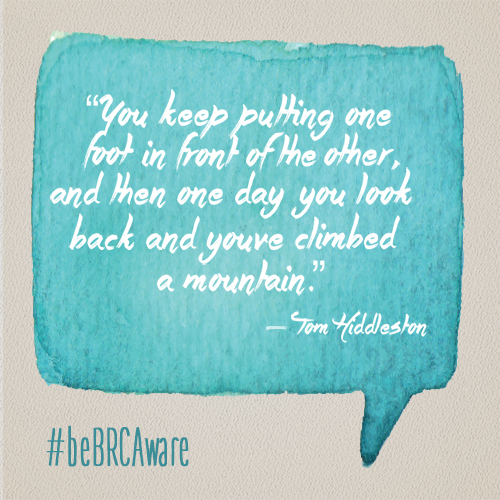
How You Can Help
Please help raise awareness for ovarian cancer during the month of September by having conversations with your friends and family members about ovarian cancer and the importance of BRCA testing.
Share one of the images or the video via social and Use the hashtag #beBRCAware to help spread the word.
Stay Connected Links
Hashtag: #beBRCAware
Website: myocjourney.com
Twitter: @beBRCAware
Facebook: https://www.facebook.com/pages/beBRCAware/250939935114040
YouTube: https://www.youtube.com/channel/UCmqqk6o8esolywblpF4-IKQ
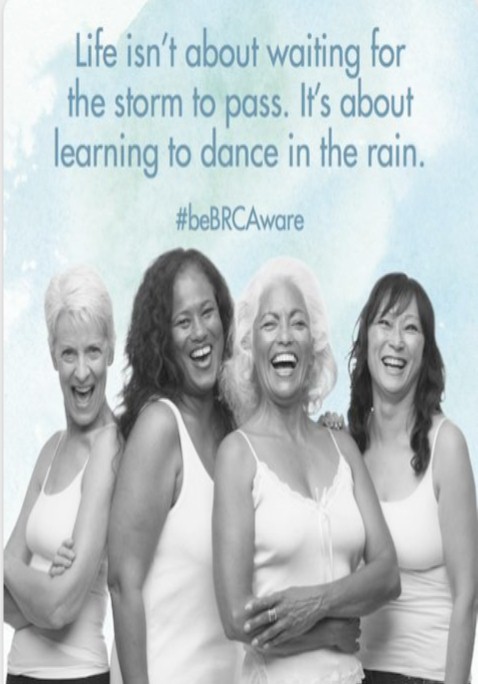


Leave a Reply